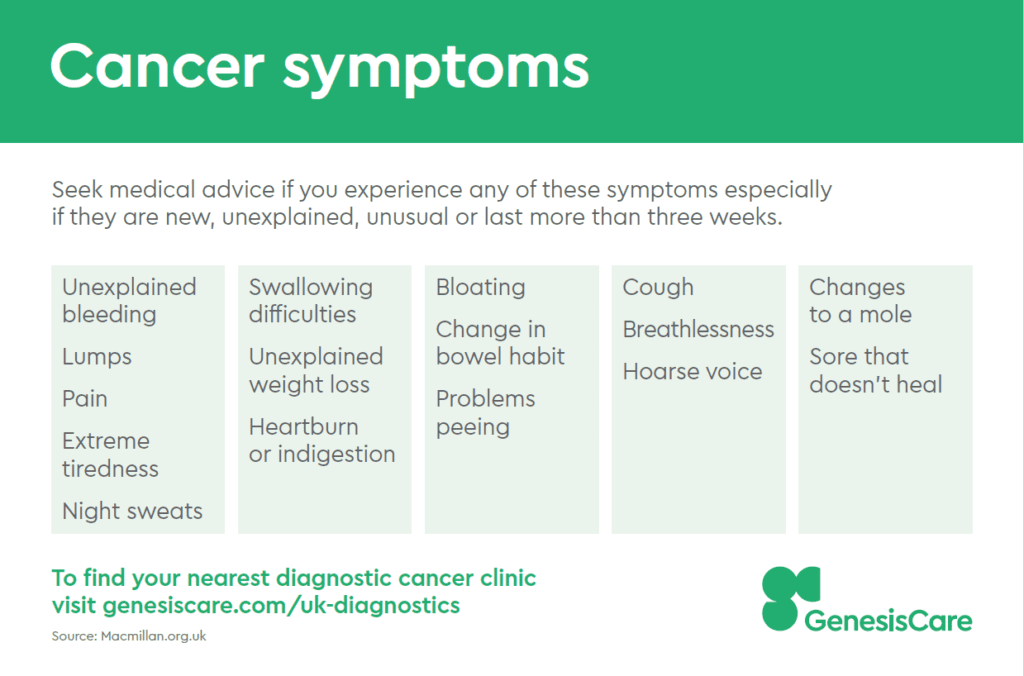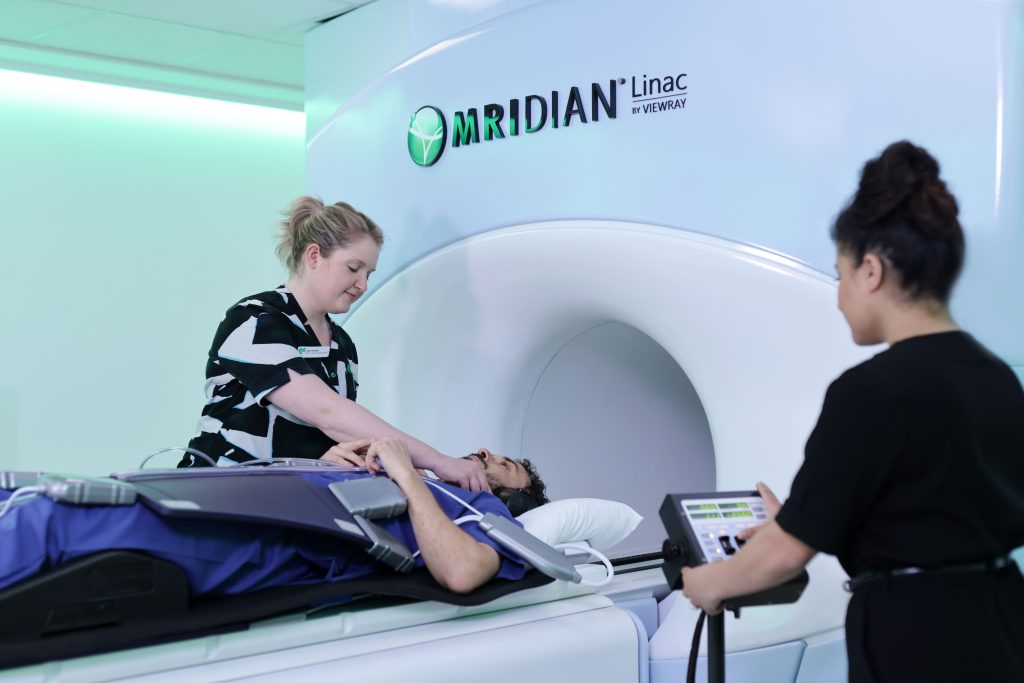Cancer won’t wait until COVID-19 is over
GenesisCare, specialists in private cancer care, explain why a cancer diagnosis shouldn’t take a back seat to COVID-19
(Published in The Jewish Chronicle)
When 77-year-old Doug was diagnosed with early prostate cancer, the news still came as a shock even though his doctors had been monitoring his rising PSA levels for years. Said Doug, ‘I found myself discussing treatment options – of which there were a few – but it was caught in the early stages so the outlook was good.’
Doug’s story reflects the experience of thousands who face cancer each year and for who, thanks to modern diagnostic techniques and early detection, cancer is increasingly survivable. But recently COVID-19 has reduced the numbers diagnosed – threatening to undo a lot of this good progress. Recent estimates in the Lancet suggest this could result in a 7.9-9.6% increase in breast cancer deaths alone.
‘Nobody wants to think about cancer in the middle of a pandemic, but it’s more important than ever to take positive action’, says, Penny Kechagioglou, Chief Medical Officer at GenesisCare, ‘Early stage cancer is easier to treat and there are more options open – such as less invasive radiotherapy and more targeted treatments – which can mean fewer side effects, fewer visits, less disruption to everyday life and shorter long term follow-up. Many studies have shown that people diagnosed early are likely to have better cancer outcomes.’
‘Here at GenesisCare we recognise the need to diagnose and treat patients early to ensure best possible outcomes. That’s why we’ve opened up more diagnostic centres in the last few months to ensure people have access when other options may not be easily available.’
Cancer is the abnormal growth of cells and can form anywhere in the body. However, it does most harm when it moves to other organs – often through blood or the lymph system –forming secondary tumours. How quickly this happens depends on how aggressive your cancer is and the only way to predict that is with diagnostic tests. At GenesisCare we also look at the genomic make-up of cancers, including breast and prostate. By doing this we can quickly assess what treatment is going to be effective so we’re not putting patients through unnecessary treatment or missing vital therapy early on. Also, the sooner we have this information the quicker we can start the right treatment. So, it really is a case of the sooner you get a diagnosis, the faster we can help you on your journey to recovery.
Although national screening programmes help, a study in the Lancet showed that 90% of cancers are detected outside routine tests. What is more likely is that someone presents at their GP or A&E with symptoms – the most common of which (see diagram below) are also responsible for a myriad of other medical ills – often making diagnosis harder.

Says Dr Kechagioglou, ‘The best advice is to be aware of what’s normal for you – people are generally very good at sensing something is wrong.’
‘In spite of this, there may be other reasons people don’t seek a diagnosis. The most significant during the current pandemic is the feeling that they may be wasting the doctor’s time – an incorrect assumption which the medical profession is trying hard to address. Here at GenesisCare we’ve been telling GPs and patients that our clinics are open with low footfall and dedicated to diagnosing and treating cancer. We offer breast and prostate clinics as well as some of the less usual cancers which can be trickier to diagnose such as haematology (blood cancers) and head and neck cancer. You don’t always need a GP referral or medical insurance to access these.’
Our One Stop Breast clinics are for anyone who is concerned about a change in their breasts. Appointments are usually within 24 hours and involve a consultation with a senior breast surgeon and a scan, usually a type of mammogram called tomosynthesis, or an ultrasound. We also use breast MRI which is very good at showing breast abnormalities, especially in younger women or with certain types of cancer (lobular). At this point, more than 90% will get the all-clear, however, if you do need a biopsy it’s usually done there and then. The results will be back within five days and, if the diagnosis is positive, you’ll find out exactly what type of breast cancer you have – and which treatment is going to be most effective. So, within a week you’ll know what you’re dealing with and have a personalised plan of what can be done.
We’ve continued to treat patients throughout the pandemic. There’s been no compromise in the care we give and we’ve used the latest radiotherapy and chemotherapy techniques, limiting the need for invasive surgery and reducing the number of visits and amount of side effects. We’re also implementing approaches which protect the heart and lungs during breast cancer treatment – organs which can be particularly vulnerable to coronavirus. And because cancer is all we do, we’ve been able to operate our standalone clinics and maintain COVID-clean environments throughout.
For some, in spite of all this, the fear of a cancer diagnosis can be enough to prevent them seeking help. Instead of waiting, our patient, Doug, whose experience opened this article, took control of his disease and started treatment early in his diagnosis – becoming the first in the UK to receive a new MRIdian radiotherapy for his prostate cancer. He said, ‘It’s life-changing to know you’re having the most advanced radiotherapy treatment and to see your condition is improving. Now I just get on with my life.’ We’d encourage everyone to do the same thing.
We offer world-class cancer care and work with leading cancer experts and healthcare teams to deliver better ways to improve life outcomes for our patients. Find your nearest centre today.

